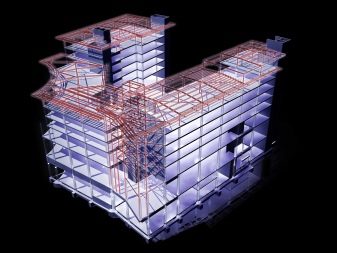With the development of BIM-technology, a specialty BIM-manager. It is already clear today that the vacancy of this designer will be in demand in the labor market. This will open up great prospects for professional development. The material in this article will tell you what the features, pros and cons of this profession are, as well as the responsibilities of a specialist.
Features
BIM-manager-designer is none other than a manager in the field of information design of objects and structures. The difference between such a specialist and a traditional designer is the development of the entire life cycle of the construction object. He is engaged in architectural development, construction, design, decoration and recycling. His job is information modeling in a specialized company.

The duties of such a manager include many tasks. Its main task is to organize and maintain in a stable state the process of creating, storing, transmitting data that appears during the implementation of a construction project. Specialist:
- develops project implementation plans,
- defines goals, creates projects in the form of BIM-models;
- develops and implements BIM standards;
- engaged in the selection of qualified personnel;
- trains subordinates on the spot, sends them to courses;
- fully accompanies ongoing projects;
- engaged in the preparation of estimates and operational characteristics;
- calculates the amount of raw materials and resources used in construction, maintenance, dismantling;
- monitors reduced construction costs, state;
- tries to prevent possible errors;
- coordinates all project activities;
- Engaged in design analytics, the distribution of responsibilities of each employee in his subordination.


Such a leader understands Autodesk Revit, Navisworks programs, as well as the rules for importing and exporting data. He is efficient in work, knows how to work with documents, is well versed in mathematics, physics, IT-technologies. The qualities of a leader are inherent in him; he owns the basics of leadership.
This manager not only implements BIM-technologies, but also knows how to manage them. He provides technical support to colleagues, collects meetings to address issues related to the implementation of project activities. Besides, such a specialist interacts with structural managers. He solves with them the issues of financial and economic activity of the company.
With regard to liability, a specialist is attracted to it in cases where his work causes damage to the company in which he works. He is also attracted for improper performance of his duties, as well as for offenses.
Training
This profession implies the presence of higher education in the field of construction, architecture, design, engineering, information technology. This is a rare specialty that excels in many respects the profession of designers and architects. The specialist choosing this profession must understand a lot. If a simple manager does not have to know foreign languages at all, then the BIM manager must be fluent in at least one.
Such managers are led not only by small, but also by large projects. However, the profession includes several areas, there is no specific specialization in universities. Therefore, those who want to master a demanded specialty have to go to architectural and construction, technical universities and colleges. In addition, these can be colleges of architecture and urban planning, entrepreneurship and economics. BIM-managers study at research construction universities, architectural and technological institutes, higher educational institutions in land management.

They go to work and at the same time improve their qualifications, developing in other directions. They attend lectures, seminars, and take courses in BIM managers. Such courses consist of thematic blocks, they are full-time and part-time. Full-time students are 20-30% more expensive, they can be visited on weekends and in the evening on weekdays.
After mastering the program, students receive training certificates. Information modeling courses are different. In one case, it is two days or 16 academic hours, in the other - 24 hours, or even more. It costs about 35,000 rubles and more.
Place of work
A BIM manager can settle in different companies. Specialists of this profile are in demand in:
- architectural design bureaus;
- engineering and consulting firms;
- construction companies.
Such specialists are needed by corporations and large developers. Small companies also take them, where young specialists have the opportunity to undergo internships.

Advantages and disadvantages
This profession has many advantages. In connection with the development of BIM-technologies, it meets the needs of the labor market, which needs specialists of this level. The market needs them, because ordinary professions cannot cover the list of necessary tasks. This work is considered prestigious, and the position itself is leading.
Such a job is quickly found. It is needed in almost every big city in our country. Due to the specifics of the profession, she is distinguished by a high level of wages. The salary of such a specialist is from 80,000 rubles and above. The larger the enterprise, the larger it is. In large cities, specialists receive within 150,000 rubles.
Such work is suitable for hard-working people prone to exact sciences. The specialty is interesting; in the course of work, a specialist can improve his qualifications.Such managers are officially employed, they receive a decent official salary. For professional development purposes, BIM managers attend interesting conferences and travel abroad.
Along with the advantages, this profession has several disadvantages. For instance, to get a job, at least a little experience is needed. University graduates will not be able to get a good company without work experience. To succeed in a particular field, talent and technical literacy are required.
The work of such specialists is associated with great responsibility. In the work you have to study and analyze a lot, but it is far from always that you have to work with polite and considerate people. Therefore, the specialist must have stress resistance and patience. He has to communicate a lot, make a lot of decisions.

This work is characterized by a large load and overtime. If the specialist does not have sufficient qualifications or poorly understands the essence of his work, this leads to a loss of the company's reputation. Such a manager will have to upgrade their skills and learn constantly. He will have to not only learn, but also go through the path of retraining. Self-education will have to devote a lot of time.










